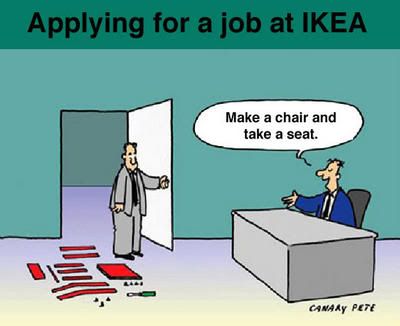IKEA is a perfect example of an entrepreneurship for the following reasons:
- fast and large amount of wealth creation
Since its creation in 1943 by 17-year-old Ingvar Kampard in Sweden , IKEA has now become the world’s leader of furniture retailing with stores in 37 countries. And last year they created a revenue of 23.1 billion euros.
 IKEA in Israel
IKEA in Israel
- new products for a new market
IKEA designs and sells furniture for the customer to assemble, selling them in a box. Their products range from bookshelves to beds and from children’s toys to kitchen knives. By this innovative way of presenting their product, Ikea is saving costs for the customer and making transportation of their product less hazzle free and expensive. His market targets the economically conscious modern person on the go that often uses public transit. Initially, this was a huge risk, as the whole concept could have been completely rejected by the customers accustomed to having their furniture pre-assembled.

- new methods of production and structure
Ikea focuses on making their operational and manufacturing methods as environmentally-friendly as possible. For example, the creation of a chair that is 100% made out of post-consumer plastic waste, using wood from responsibly-managed forests, and investing in solar panels, energy efficiency, and water saving and purification.





